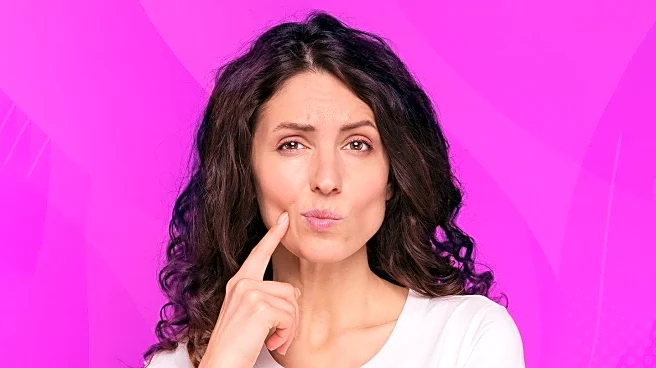What's Happening?
Medical professionals are emphasizing alternative treatments for menopause symptoms for women who cannot undergo hormone therapy due to health risks such as breast cancer, severe liver disease, or cardiovascular
issues. Lifestyle changes, including increased physical activity and dietary adjustments, are recommended to alleviate symptoms like hot flashes and night sweats. Non-hormonal prescription drugs, such as antidepressants and new medications like Veozah and Lynkuet, offer additional options, though they come with potential side effects. Cognitive behavioral therapy and clinical hypnosis are also suggested as effective non-medical interventions.
Why It's Important?
The significance of these alternative treatments lies in providing safe options for women who are unable to use hormone therapy due to medical contraindications. This development is crucial for improving the quality of life for many women experiencing menopause, as it addresses both physical and psychological symptoms. The availability of diverse treatment options can help mitigate the risks associated with untreated menopause symptoms, such as increased cardiovascular issues and mental health challenges. This approach also highlights the importance of personalized healthcare solutions.
What's Next?
Further research and development in non-hormonal treatments are expected to continue, potentially leading to more effective and safer options for managing menopause symptoms. Healthcare providers may increasingly focus on personalized treatment plans that incorporate lifestyle changes and non-hormonal medications. As awareness grows, more women may seek these alternatives, prompting healthcare systems to adapt and expand their offerings.
Beyond the Headlines
The exploration of non-hormonal treatments for menopause reflects broader trends in healthcare towards personalized medicine and the integration of lifestyle factors in treatment plans. This shift may influence how other conditions are managed, emphasizing the role of diet, exercise, and mental health in overall well-being.










